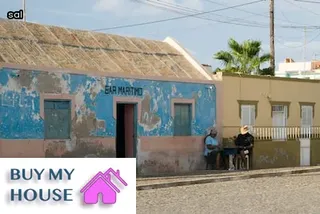When dealing with selling a house in Indiana, it is important to understand the process of probate and its implications. Probate is the legal process by which assets are distributed from an estate after a person has passed away.
In Indiana, the court assigns an executor or administrator to oversee probate proceedings. This individual is responsible for collecting all of the deceased's assets, paying off any outstanding debts owed, and distributing what remains to the rightful heirs.
In some cases, this may involve putting a home up for sale as part of the process. When this occurs, it is known as a probate listing.
Probate listings come with their own unique set of regulations that must be followed in order for them to be valid under Indiana law. It is essential that individuals looking to purchase these types of homes understand these rules before making any offers or entering into agreements.

The probate court system in Indiana is a complex process that can be confusing to those looking to buy or sell a house. It is important for potential buyers and sellers to understand the process before making any decisions.
Before beginning the process, it is essential to become familiar with all applicable statutes and laws. This includes an understanding of the inventory of assets and liabilities, as well as any restrictions that may apply.
Additionally, it is wise to consult with an attorney who specializes in real estate law to ensure that all paperwork is completed correctly. Furthermore, all relevant documents must be filed with the probate court prior to any sale being finalized.
Finally, once the sale has been approved by the court, both buyer and seller should consider having a power of attorney document drawn up for each party in order to protect their legal rights throughout the transaction.
In Indiana, probate is necessary when the ownership of real estate needs to be transferred following the death of the owner. This process involves an appointed individual or court validating the will of the deceased and ensuring that all debts and taxes are paid before any assets are distributed.
If a decedent dies without a will, the probate court must determine who receives title to their property. The court's decision is based on intestate succession laws, which dictate who inherits when there is no will.
The Probate process can take anywhere from six months to two years or more depending on the complexity of the estate and additional legal requirements that need to be met. As part of this process, a notice may be published in a local newspaper informing potential buyers that a house is being sold as part of an estate settlement.

In Indiana, when it comes to selling a house, probate listings are not the only option for small estates. There are alternatives that can be used to facilitate the sale of a home when an individual passes away.
One potential alternative is known as Affidavit of Heirship. This allows the heirs of the deceased to take possession of the real estate and transfer title without going through probate court.
Additionally, Transfer on Death (TOD) deeds are another option which allow property owners to designate a beneficiary who will receive title to their real estate upon their death without involving probate proceedings. Other alternatives include small estate affidavits and life estates.
Each of these options has its own set of requirements that must be met in order for them to be valid and effective in Indiana, so it is important to consult with an experienced attorney before pursuing any of these alternatives as a means for selling a house in Indiana.
When selling a house in Indiana, it’s important to know how to avoid probate. Probate is the legal process that transfers ownership of assets from an estate to the rightful heirs or beneficiaries and can be costly and lengthy.
Fortunately, there are steps you can take as a seller to make sure your property isn’t subject to probate when you transfer ownership. One way is to create a living trust, which allows you to place your property into a trust before you pass away so that it can easily be transferred without having to go through the probate process.
Additionally, you may consider adding joint tenants or tenants in common when transferring ownership of the property. This way, if one of the owners passes away, then the other will automatically become the sole owner without having to go through probate.
Finally, if you have several properties that are being transferred at once, you may want to consider creating a family limited partnership which can help keep all assets together and out of probate court. Taking these steps will ensure that your estate is handled quickly and efficiently during the sale of your home in Indiana.

The responsibility of managing a probate process when selling a house in Indiana falls upon the executor or personal representative, who is appointed by the court. This individual has the authority to sign contracts, pay bills, and to do whatever is necessary to close the estate.
The executor must also determine whether the state requires an appraisal for the property and manage any potential claims from creditors. They must also comply with Indiana probate law, which can be complex and time consuming.
Additionally, it is their job to make sure that all the beneficiaries of the estate receive notice of any proposed sale. In order to ensure that all steps are taken in accordance with state laws, it is highly recommended that an attorney experienced in probate matters be consulted throughout the process.
Selling a house in Indiana through probate listings can be a complicated process, so it is important to understand the steps involved in the Indiana Probate Court process. Depending on the size of the estate and any other factors that may apply, some of these steps may take longer than others.
To begin, a petition needs to be filed with the court by an interested party. Once the court has reviewed and accepted the petition, an appointed personal representative will be assigned to manage the estate.
This includes gathering all assets and settling debts with creditors. Then, an inventory must be taken of all assets owned by the deceased person and presented to the court for approval.
After this step is completed, a notice must be distributed to any heirs or claimants regarding their right to object to terms of distribution. A hearing may then take place if there are objections or questions about how assets should be divided among heirs or sold off.
Once all disputes are settled and approved by the court, documents can finally be prepared for sale of any real estate within Indiana probate listings.

When selling a house in Indiana, it is important to understand the probate process and what debts and taxes may be owed during the sale. The executor of an estate must pay all outstanding debts associated with the deceased owner before distributing any profits from the sale of the home.
Depending on the size of the estate, taxes might also be owed. Any income earned by the deceased owner between their death and when the house is sold may be subject to federal estate tax.
Additionally, there may be state taxes due on capital gains from selling real estate in Indiana. It is important to have an experienced real estate professional help with navigating these taxes and debts, so that both buyers and sellers can be sure that all liabilities have been taken care of before closing on a probate listing.
When selling a house in Indiana, it is important to be aware of the state's probate laws. Probate is a court-supervised process for validating a will and distributing property according to its provisions.
In Indiana, probate is required for estates with assets greater than $50,000 unless the beneficiaries agree to an alternative way of settling the estate. When selling a home, it’s crucial to understand that probate can involve significant time and expense.
If the buyer requests a copy of the will or other documents related to the estate, they may need to be submitted through probate court. Additionally, if it's necessary to sell real estate in order to pay off creditors or distribute assets according to the will, probate must occur.
It's important that sellers understand how their particular estate is structured and whether or not it requires probate prior to listing a home so they can effectively plan for all possible contingencies.

When it comes to selling a house in Indiana, many people might not know the importance of exploring final wishes through testaments and codicils. A testament is a legal document that outlines how a deceased person's assets should be distributed among their heirs, while a codicil is an amendment or supplement to an existing will.
Both documents are important in determining who has the right to inherit property like a house when someone passes away. If the estate is small, then beneficiaries may be able to avoid probate court and receive the inheritance directly from the executor of the will.
Even if probate is unavoidable, understanding testaments and codicils can help ensure that all parties involved in the sale have their rights secured and respected. The language used in these documents can sometimes be difficult to decipher, but with proper research and guidance from an attorney, sellers will have a better chance of ensuring all legal requirements are met before any transfer of ownership takes place.
Transfer-on-Death (TOD) documentation is a way for a property owner to designate a beneficiary who will receive the property upon their death. It provides an alternative to probate listings in Indiana when selling a house after the owner's death.
This type of documentation allows for the transfer of legal title of the property without court proceedings or other formalities, as long as it is properly executed and recorded before the owner's death. TOD documents can be used to create transfers in fee simple, which means that all interest in the property passes on to the designated beneficiary.
The TOD document must also be signed by two witnesses and notarized. By using TOD documentation, owners can avoid probate proceedings, streamline the process of transferring ownership after death, and save time and money.
In addition, TOD documents allow owners to retain control over their assets while they are alive and determine how they will be distributed after their death.

When selling a house in Indiana, understanding the timeline of a typical probate case is essential. In most cases, it takes an average of six to eight months for the court to open a probate case and another two to three months for an executor or administrator to be appointed.
The executor or administrator will then take care of all assets listed in the will. They must file an inventory with the court, pay any debts and taxes that are owed, and settle any disputes that may arise.
After all of this is taken care of, they must then file a petition with the court asking permission to sell the property. Once approved by the court, they can list the house for sale and proceed with closing when it sells.
It's important to note that this process can vary based on where you live in Indiana as well as other special circumstances so it's always best to consult a qualified attorney if you are considering selling a house through probate.
In Indiana, when a person passes away, their estate is subject to the probate listing process. This means that any assets they owned at the time of their death must be listed in probate court and are subject to certain laws and regulations.
Assets can include real estate such as a house or land, personal property like furniture or vehicles, bank accounts, stocks and bonds, life insurance policies and other financial instruments. In some cases, business interests may also be subject to probate listing.
Generally speaking, all assets owned by the deceased person in Indiana will need to be included on the probate list. It is important to remember that creditors have priority over assets listed on the probate list and therefore it is possible for creditors to claim assets before those assets are sold or distributed according to the wishes of the deceased individual.
Before selling a house in Indiana it is essential to understand how probate listings work so that you are not taken advantage of during this process.

When selling a house in Indiana, probate listings are something to consider. It is important to avoid long periods of time without a will being filed.
When the owner of the property passes away and no will is present, it can cause delays or even prevent a sale from occurring. The court may appoint an executor to handle this process and they can be difficult to track down.
In some cases, if there is no next of kin, the state will take ownership of the property until a will is found. This can result in extended periods of time with no sale taking place and could cost future buyers or sellers money due to taxes or fees incurred by neglecting to file a will quickly.
To avoid such problems, it is wise to make sure that all documents related to the property are accounted for and that a proper will is filed as soon as possible after an owner’s passing.
The process of probating an estate in Indiana involves dealing with the executive compensation of the estate. This is the process where all debts associated with the deceased must be paid and any remaining assets are distributed to the heirs or beneficiaries.
It is important to understand that this process can be both lengthy and complex, depending on the complexity of the estate itself. The executor of an estate has a fiduciary duty to ensure that all legal obligations are met and that all assets are properly allocated according to Indiana law.
In addition, they may also be responsible for filing various tax returns related to the estate, such as federal income taxes, state inheritance taxes, and others. They will also need to provide detailed accounting records and prepare a final report summarizing all payments made on behalf of the estate.
During this process, it is important for anyone selling a house in Indiana with a probate listing to understand any potential liabilities associated with their executor's actions and decisions regarding their estate.
In Indiana, probate is the legal process of validating a will through the court system and distributing assets to heirs. The court appoints an executor to oversee the distribution of assets, pay debts and taxes, and resolve any disputes regarding the estate.
Probate can take anywhere from a few months to several years depending on the complexity of the estate. When selling a house in Indiana, it is important to understand how probate may impact your listing.
Properties listed as “probate” require additional paperwork and may take longer to close than other listings. It is also important to be aware that buyers may have more leverage when negotiating price due to the complex nature of probate sales.
It is essential for sellers to work with an experienced real estate agent when selling a home in Indiana through probate in order to ensure that all paperwork is filed correctly and all deadlines are met.

In Indiana, when an individual passes away, their estate must go through probate. As part of the process, the court will appoint a Personal Representative to oversee and administer the estate.
This includes selling any real property owned by the deceased. In order to sell a house in Indiana, the Personal Representative must first obtain a court order authorizing them to do so.
The court order is called a Probate Listing. Probate listings are legally binding documents that specify how the house will be sold and who is responsible for paying any associated costs.
When selling a house in Indiana, it's important to understand what is required for a probate listing and how long it may take before you can officially close on the sale of your home.
The process of probate in Indiana is a necessary one when selling a house. Probate is the legal process that transfers ownership of an estate from the deceased person to his or her heirs, and must be completed before any assets can be legally transferred.
In order for an estate to go to probate in Indiana, it must have a value greater than $50,000. This includes both real and personal property, such as stocks, bonds, vehicles and other items of value.
It's important to note that this figure does not include the amount of money owed on any mortgages or liens against the property. It's also important to consider that if there are multiple beneficiaries involved in the estate, each beneficiary may be responsible for paying their own share of taxes resulting from the sale of the house or other assets.
When selling a house in Indiana, it is important to know how to avoid probate. Probate is the process by which a deceased person's assets are distributed and can be a lengthy and expensive process.
In order to avoid probate, you should consider creating an estate plan that outlines who will inherit your property upon your death. This can be done through wills, trusts, or other legal documents.
Additionally, if your home is owned jointly with someone else, your share of the home may pass directly to them without going through probate. Finally, you may want to consider transferring any ownership of the house into a living trust prior to listing it for sale in order to avoid probate altogether.
By taking these steps you can ensure that the sale of your house in Indiana goes smoothly and quickly while avoiding any costly probate proceedings.